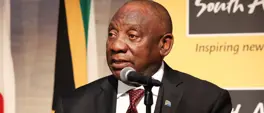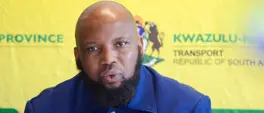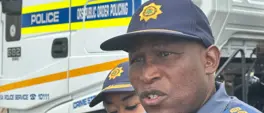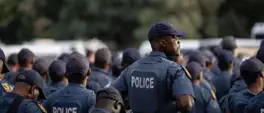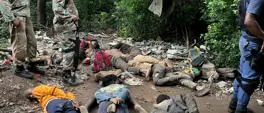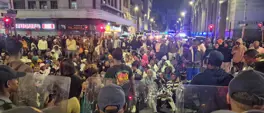CHARLES MATSEKE | The Republic of commissions: Why exposing rot isn't the same as uprooting it
Charles Matseke
30 September 2025 | 10:15"If the Maumela revelations teach us anything, it is that South Africa faces not just corrupt individuals but syndicated governance: a system where lawmaker, intermediary, and enforcer collaborate to turn the state itself into a criminal enterprise."
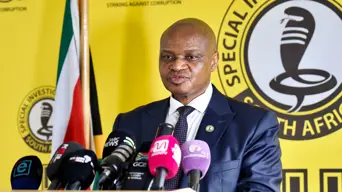
SIU head Advocate Andy Mothibi, Photo: Katlego Jiyane
The latest Special Investigating Unit (SIU) report has laid bare what many South Africans suspected but could not fully trace.
The existence of sophisticated syndicates siphoning billions from public coffers while hospitals collapse, whistleblowers are murdered, and the poor are left to die in long queues.
At the centre of this storm is Tembisa Hospital, which should be a lifeline for the vulnerable but has become a byword for plunder.
The SIU estimates that R2 billion has been lost through irregular procurement and fraudulent contracts. Of this amount, R850 million had already been flagged by the late Babita Deokaran, the whistleblower assassinated in 2021 after she raised alarms about dodgy payments.
Her death now reads like an opening act in a script we are forced to relive, courageous individuals pointing to corruption, silenced by bullets, while the syndicates expand their empires.
At the heart of the Tembisa revelations is what has now been formally described as the Maumela Syndicate.
Hangwani Morgan Maumela has been implicated in extensiveinvestigations of alleged corrupt procurement and tender irregularities, including contract splitting to avoid oversight.
The SIU reports that at least 41 suppliers linked directly to Maumela benefitted from hospital tenders. The Asset Forfeiture Unit (AFU) has since frozen a wide array of assets belonging to Maumela and his entities, which include luxury homes in Johannesburg's wealthiest estates, fleets of high-end cars, and bank accounts flush with unexplained income.
These assets represent the real cost of corruption. Wealth converted from oxygen machines, ICU beds and medicines into Lamborghinis and porcelain-tiled mansions. But Maumela is not an outlier. Testimony and evidence before both the commission and the courts link him to Vusi “Cat” Matlala and Katiso Molefe, confirmed members of what insiders call the 'Top Five'.
How is Vusi ‘Cat’ Matlala linked to the police corruption allegations?
TIMELINE: Controversial businessman Vusimuzi 'Cat' Matlala in court
Matlala and Molefe's criminal dockets paint them not as boardroom masterminds but as enforcers. Figures with reputations for violence, extortion and bloody turf wars. They embody the muscle that keeps whistleblowers silent and tenders flowing.
By contrast, Maumela presents as something different: a discreet, reserved man, absent from social media, cultivating a life of quiet opulence. He is not a politician and not a known gangster.
This suggests he may occupy the role of intermediary, the bridge between the violent enforcers and the two unnamed high-ranking political figures believed to complete the Top Five. If that is true, the Maumela Syndicate is not just another tender scam.
It is a critical node in a broader architecture of state capture, enforcers to intimidate, intermediaries to channel money, and politicians to protect. Ironically, the efficiency of this machinery is striking. Tenders are secured, payments expedited, enforcement guaranteed, all without delays.
If such precision and speed were applied to governance itself, South Africa might be among the world's most developed societies. Imagine ministers issuing clear service delivery directives on New Year's Day, demanding progress reports every other week, and enforcing consequences with the same zeal that syndicates deploy to protect their networks.
What feels like wishful thinking is, in fact, structurally possible. The same state that can disband a specialist unit like the Political Killings Task Team (PKTT) in record time could, with different priorities, deliver healthcare and housing just as swiftly.
One way to make sense of the commission's proceedings is through data triangulation - examining how different forms of evidence converge.
In both the Selebi-Agliotti trial and the current SIU cases, four strands consistently reappear:
· Phone and communication records, which document collusion.
· Financial trails exposing tenders, invoices, bank accounts showing how money is siphoned and laundered.
· Witness affidavits and interviews, often at great personal risk, which give human detail.
· Internal intelligence documents, when leaked, confirming that the state knew more than it admitted. This triangulation strips away the illusion of “isolated incidents.”
The convergence of evidence across decades shows systemic capture, not sporadic misconduct.
HAPPENING NOW:
— EWN Reporter (@ewnreporter) September 29, 2025
An interim SIU report has revealed 3 syndicates operating at the Tembisa Hospital.
1- Hangwani Morgan Maumela & Vusi ‘Cat’ Matlala( tenders worth: R816m +)
2- Rudolf Mazibuko( tenders worth: R283m +)
3- X (tenders worth: R596m +)
📷: @RSASIU pic.twitter.com/VW7TKlvynQ
The hearings also highlight a subtler issue: the opportunity cost of what is revealed versus what is withheld. The SIU's decision to detail R2 billion in irregular contracts at Tembisa Hospital while holding back on other equally suspicious facilities creates a distortion.
The public gets fragments of the truth, but at the cost of a full systemic picture. What else could have been exposed if disclosure had been comprehensive? Each omission delays accountability elsewhere.
General Khumalo's testimony illustrates the same dilemma. By naming certain figures and not others, he narrowed the frame of inquiry. Perhaps this was strategic caution, perhaps protection.
But the opportunity cost is clear: silence about other actors allows them to regroup, rebrand, and continue looting under different guises. In the Republic of Commissions, what remains unsaid is often as consequential as what is spoken. Layered onto this are the logic tricks that shield elites.
The fallacy of false composition, which treats Tembisa's corruption as an isolated scandal rather than evidence of a wider disease, remains a favourite defense.
Equally damaging is false equivocation: restructuring is used to describe the neutralisation of investigators, “disciplinary action” masks the intimidation of whistleblowers, and kickbacks are reframed as “networking.”
These fallacies erode accountability by cloaking capture in the language of normal governance.
The Maumela empire, estimated at R520 million in assets under investigation, is not the only show in town. Another network, the Mazibuko Syndicate, led by Rudolf Mazibuko, has been flagged for irregular contracts worth R42 million.
Though relatively small compared to Maumela’s empire, Mazibuko's operation has all the hallmarks of a syndicate-in-the-making: shell companies, politically connected contractors, and sudden wealth.
In the “Republic of Commissions,” today's R42 million is tomorrow's R420 million. A third cartel is already beginning to surface in preliminary reports.
While details remain under wraps pending further SIU confirmation, early leaks suggest another procurement network operating through provincial health departments with links to at least two municipal councils. If established, this would complete the picture: not isolated scandals, but a nationwide lattice of syndicates feeding off the same vulnerable state.
The political implications are devastating. Investigators and media reports now suggest that proceeds from these criminal enterprises have flowed directly into ANC campaign coffers, financing electoral machinery at a time when the party faces historic decline.
Polling for the upcoming local government elections places ANC support in the low 20% range, unprecedented territory for a movement that once enjoyed hegemonic dominance.
Cadre deployment, designed as a means of control, proved too slow for those who joined the movement for self-enrichment. The gravy train needed more fuel and a faster pace.
Enter the cartels' networks capable of delivering both money and muscle. In this light, state capture is not a Zuma-era aberration but a survival strategy for a party fighting to maintain its grasp on power. The Republic of Commissions from Zondo to Madlanga has exposed corruption with forensic detail.
Yet the concentric circles of impunity remain intact. Every commission seems to catalogue the rot but stop short of uprooting it.
If the Maumela revelations teach us anything, it is that South Africa faces not just corrupt individuals but syndicated governance: a system where lawmaker, intermediary, and enforcer collaborate to turn the state itself into a criminal enterprise.
Until this machinery is dismantled through prosecutions, protection of whistleblowers, and the rebuilding of investigative capacity, commissions will remain theatre.
The Republic of Commissions spins on, its syndicates entrenched, unless this moment is seized not for another report, but for genuine accountability.
Charles Matseke (MPhil in Politics and International Relations) is a researcher and writer with a keen interest in contemporary political dynamics. His research focuses on electoral politics, foreign policy analysis, and international relations, with a particular emphasis on the Global South and Africa's role in global affairs.
Get the whole picture 💡
Take a look at the topic timeline for all related articles.
Trending News
More in Opinion
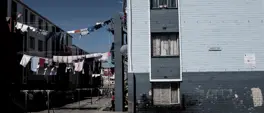
13 February 2026 10:24
JAMIL F. KHAN | Crime is not the disease, it’s the inheritance

13 February 2026 04:28
MANDY WIENER | Ramaphosa meets the moment on water and crime, but lived experiences will be the measure
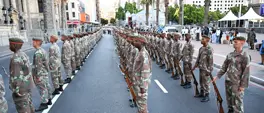
12 February 2026 09:49
JUDITH FEBRUARY | SONA 2026: Ramaphosa faces a defining test of leadership and the rule of law

